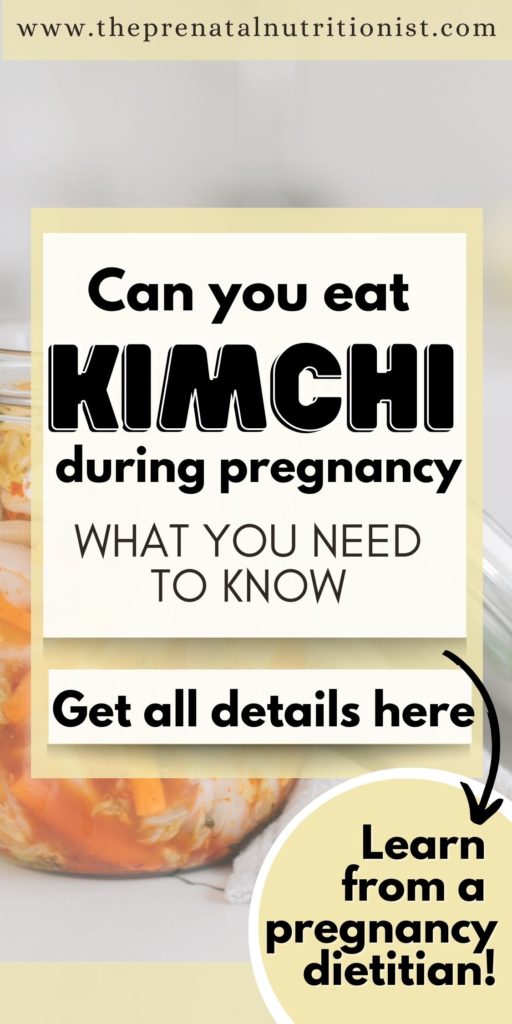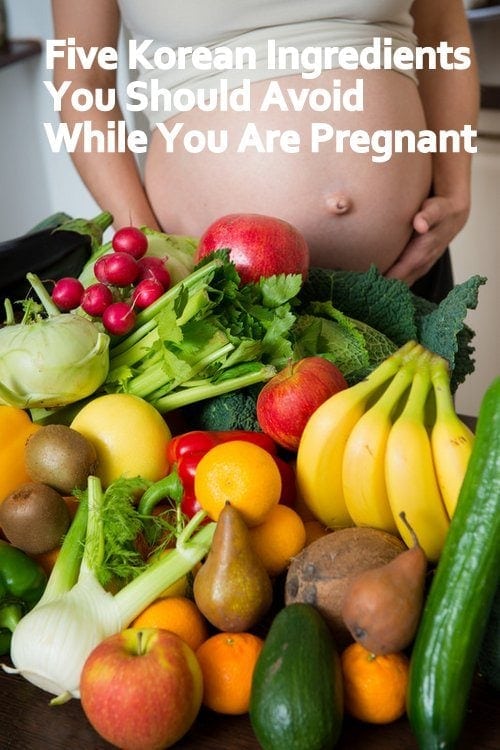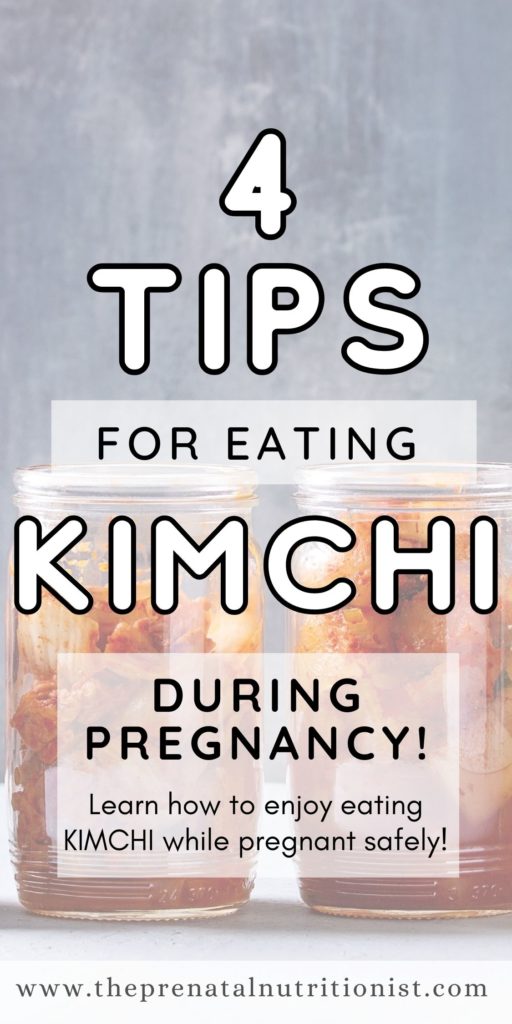Kimchi & Pregnancy: Is It Safe? What You Need To Know
Can a simple dish like kimchi, a staple in Korean cuisine, truly become a culinary concern during pregnancy? The answer is nuanced, but with careful consideration and informed choices, enjoying kimchi while pregnant can be both safe and potentially beneficial.
The journey of pregnancy often ushers in a cascade of dietary considerations. Among the many questions that arise, the safety of consuming fermented foods like kimchi frequently surfaces. Kimchi, a vibrant and flavorful dish made from fermented vegetables, typically includes napa cabbage, Korean radish, spring onion, and a blend of seasonings. Its complex flavor profile, ranging from tangy and spicy to savory, has captivated palates worldwide. However, the fermentation process, while responsible for its unique taste and purported health benefits, introduces elements that require scrutiny during pregnancy.
The primary concerns revolve around the potential presence of harmful bacteria and the impact of certain compounds on both the mother and the developing fetus. However, it's crucial to distinguish between raw and pasteurized kimchi, as this distinction largely dictates the safety profile. Raw kimchi, packed with beneficial probiotics, also carries a risk if the fermentation process is not properly controlled, potentially leading to the growth of undesirable bacteria. Pasteurized kimchi, on the other hand, undergoes a heating process that eliminates harmful microorganisms, making it generally safer for consumption during pregnancy.
The nutritional landscape of kimchi presents compelling reasons to consider its inclusion in a prenatal diet. Kimchi is a good source of essential nutrients such as vitamins A, B, and C, as well as minerals like iron and calcium. These nutrients play critical roles in supporting maternal health and fetal development. Vitamin A is vital for vision and immune function; B vitamins aid in energy production and neurological development; vitamin C boosts the immune system and supports collagen formation; iron is crucial for preventing anemia, and calcium is essential for bone health. Moreover, the probiotics present in kimchi can contribute to improved gut health, aiding digestion and potentially boosting the immune system.
However, it is important for pregnant women to consider the preparation and pasteurization of kimchi. To ensure the safety of the kimchi you eat during pregnancy, it is important to follow proper food safety practices. Make sure the kimchi is properly fermented and stored in the refrigerator.
When delving into the world of kimchi consumption during pregnancy, its essential to navigate with knowledge and caution. The preparation and storage of kimchi are paramount. Proper fermentation techniques are crucial to minimize the risk of harmful bacterial growth, such as Listeria or E. coli, which can pose significant health risks, especially during pregnancy. Similarly, the storage conditions of kimchi play a vital role in maintaining its safety. Refrigeration is a must, and one should always be mindful of the use by date.
It's also worth noting that kimchi, especially when consumed in excess, can trigger heartburn and indigestion due to its spiciness. If you're prone to such digestive discomforts, moderation is key. The amount of kimchi considered safe varies from individual to individual. Consulting with a healthcare provider, such as your obstetrician or a registered dietitian, is highly recommended. They can offer personalized advice tailored to your specific health profile and dietary needs. Discussing any existing digestive issues or other pregnancy-related complications is essential, as this allows for a more informed and safe dietary approach.
For those who are breastfeeding, the good news is that eating kimchi is considered safe. The benefits of kimchi, like probiotics, can even pass through breast milk, potentially benefiting the baby's gut health. The advice of experienced healthcare providers and prenatal specialists becomes a valuable resource when considering a healthy pregnancy diet.
To elaborate further, lets address some frequently asked questions:
Is Kimchi Safe During Pregnancy?
Yes, generally speaking, kimchi is safe during pregnancy. However, the safety hinges on the type of kimchi, its preparation, and the quantity consumed. Pasteurized kimchi, which has been heated to eliminate harmful bacteria, is generally considered safe. However, homemade or non-pasteurized kimchi requires greater caution due to the potential for bacterial contamination. Moderation is also key, as excessive consumption can lead to digestive discomfort.
Can Eating Kimchi Cause Harm to My Unborn Baby?
The risk of harm to the unborn baby from kimchi is generally low, provided the kimchi is properly prepared, stored, and consumed in moderation. The main concerns are related to the potential for foodborne illnesses, such as listeriosis, which can be particularly dangerous during pregnancy. However, these risks are significantly reduced with pasteurized kimchi and proper food safety practices.
Can I Eat Homemade Kimchi While Pregnant?
Homemade kimchi can be safe during pregnancy, but only if stringent food safety measures are followed throughout the preparation and fermentation process. This includes using clean utensils and equipment, thoroughly washing vegetables, and ensuring proper fermentation conditions. However, due to the increased risk of bacterial contamination, store-bought, pasteurized kimchi is often a safer option.
What About Kimchi and Breastfeeding?
Eating kimchi while breastfeeding is considered safe. The probiotics in kimchi can potentially benefit the mother's gut health and may also be transferred through breast milk to the baby, promoting healthy gut development.
How Can I Ensure the Safety of the Kimchi I Eat During Pregnancy?
To ensure the safety of kimchi consumption during pregnancy, select pasteurized kimchi from reputable sources. Read the label to confirm that it has undergone pasteurization. Follow the "use by" date and store kimchi properly in the refrigerator. Be mindful of the kimchi's appearance and smell, discarding it if there are any signs of spoilage, such as unusual odors, discoloration, or mold. Consider eating kimchi in moderation to avoid potential digestive issues.
The world of food during pregnancy can seem like a minefield, but with informed choices, even a flavorful dish like kimchi can find a place in your diet. By understanding the risks, taking precautions, and consulting with healthcare professionals, you can make safe and healthy decisions that support both your well-being and the healthy development of your baby.
Let's break down the key considerations further. The primary risk associated with kimchi, as with any fermented food, is the potential for bacterial contamination. During the fermentation process, various bacteria, yeasts, and molds naturally flourish. However, the presence of undesirable microorganisms like Listeria monocytogenes can pose a risk, particularly during pregnancy. Listeriosis, a foodborne illness caused by this bacterium, can lead to severe complications, including miscarriage, stillbirth, and premature delivery. This is why pasteurization is crucial. It eliminates these harmful bacteria, making the kimchi safer for consumption.
Beyond the potential for harmful bacteria, other aspects of kimchi consumption during pregnancy warrant consideration. The spice level, a signature characteristic of many kimchi varieties, can lead to heartburn and indigestion. Hormonal changes during pregnancy can already increase the likelihood of these digestive issues. Therefore, moderation is key, particularly for those prone to such discomforts. Starting with small portions and observing how your body reacts is wise. If you experience any adverse effects, it's best to reduce or eliminate kimchi from your diet.
It is always best to discuss any concerns about eating kimchi with your prenatal provider, especially if you have digestive issues or existing pregnancy complications. With their guidance, kimchi can be an excellent addition to a healthy prenatal diet. They can offer personalized advice based on your individual health profile.


